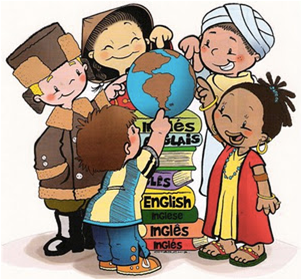LEGAL PROTECTIONS FOR ETHNIC MINORITIES
Jun 06,2016
"All human beings are born free and equal in dignity and rights.... Everyone is entitled to ... rights ... without distinction of any kind, such as race, color, sex, language, religion, political or other opinion, national or social origin, property, birth or other status.... All are equal before the law and are entitled without any discrimination to equal protection of the law. All are entitled to equal protection against any discrimination ... and against any incitement to ... discrimination.... Everyone, without any discrimination, has the right to equal pay for equal work....” -- Universal Declaration of Human Rights, Articles 1, 2, 7, and 23 (Koenig, 2016)
One of the fundamental purposes of human rights is the recognition that human beings are born free and equal in dignity and rights. A clear violation of this principle is the discrimination and persecution on grounds of race and ethnicity. There are several forms of racial discrimination, since the most brutal of institutional forms of racism as genocide and / or apartheid, to more sheltered ways by which certain racial or ethnic groups are deprived of the full enjoyment of the same civil rights, political economic, social and cultural rights as other members of society. Today the problem of discrimination (racial and ethnic) is the human rights issue that arises for most minority populations and, sometimes, for the majority too. The focus of the initial international attention was focused on racial segregation in South Africa, a practice which ended in 1994. However, the fight against racial and ethnic hatred continued throughout the decade of the 1990's with one of the worst ethnic conflicts seen by the world in the Balkans and the great lakes region in Africa.

RIGHTS AT STAKE
•Right to protection against hatred, racial discrimination and violence.
International human rights require that States not taking part in acts of discrimination based on race and put in place a variety of measures to prevent racial discrimination by institutions, public organizations and individuals.
•Right to equal protection of the law without discrimination on grounds of race or ethnicity.
Racial and ethnic minorities enjoy equal civil, political, economic, social and cultural rights than any other group. Most human rights treaties (even those not specifically focus on issues of ethnic and race) contain no discriminatory provisions, forcing States to implement principles of law without distinction as to race, religion, social origin .
•The right to the full enjoyment by minorities of their own culture, language and religion.
This right appears in various treaties and is a recognition that minorities should be able to play freely of their rights under their cultural heritage. Sometimes there may be conflict between cultural, linguistic and religious practices and state values and practices of minorities. To solve the problem, some states insist on knowledge, at a certain level, the language and dominant culture.
•The right to asylum because of well-founded fear of being persecuted for reasons of race, religion, nationality, political opinion or membership of a particular social group.
If the country can not protect you in case of persecution, everyone has the right to seek asylum, and to enjoy it, in any country. This is one of the few occasions when the failure to meet the requirements of human right provides the individual the opportunity to seek protection from another state. In addition, states must apply the provisions of international refugee law without discrimination on grounds of race.
In international human rights law, the term race is generally used in a broader sense that blurs distinctions among other groups of people based on religion, ethnicity, social group, language and culture. Moreover, sometimes the term "ethnic" is used to encompass groups perhaps not part of different racial and biological groups, such as caste systems in India and Japan.
References:
Koenig, S. (2016). The Human Rights of Ethnic Minorities. Retrieved from The People's Movement for Human Rights Education: http://www.pdhre.org/rights/ethnicity.html
Agency for Healthcare Research and Quality (US) 2008 national healthcare disparities report. AHRQ Publication No. 09-0002. Rockville (MD): AHRQ; 2009. Mar, [cited 2010 Nov 2]. Also available from: URL: http://www.ahrq.gov/qual/nhdr08/nhdr08.pdf.





